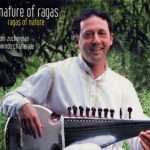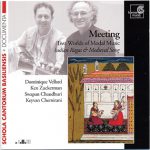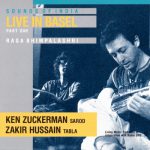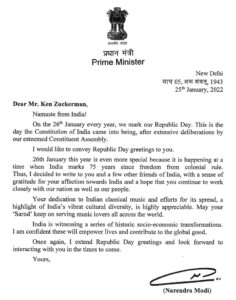Ken Zuckerman, Grammy-nominated and internationally acclaimed as one of the finest sarod virtuosos performing today, has also been called “…one of the world’s most eclectic masters of improvisation.” He completed thirty-seven years of training under the rigorous discipline of India’s legendary sarod master Ustad Ali Akbar Khan, up to the maestro’s passing in June 2009. Ken also performed with Maestro Khan in numerous concerts in Europe, India, and the United States.
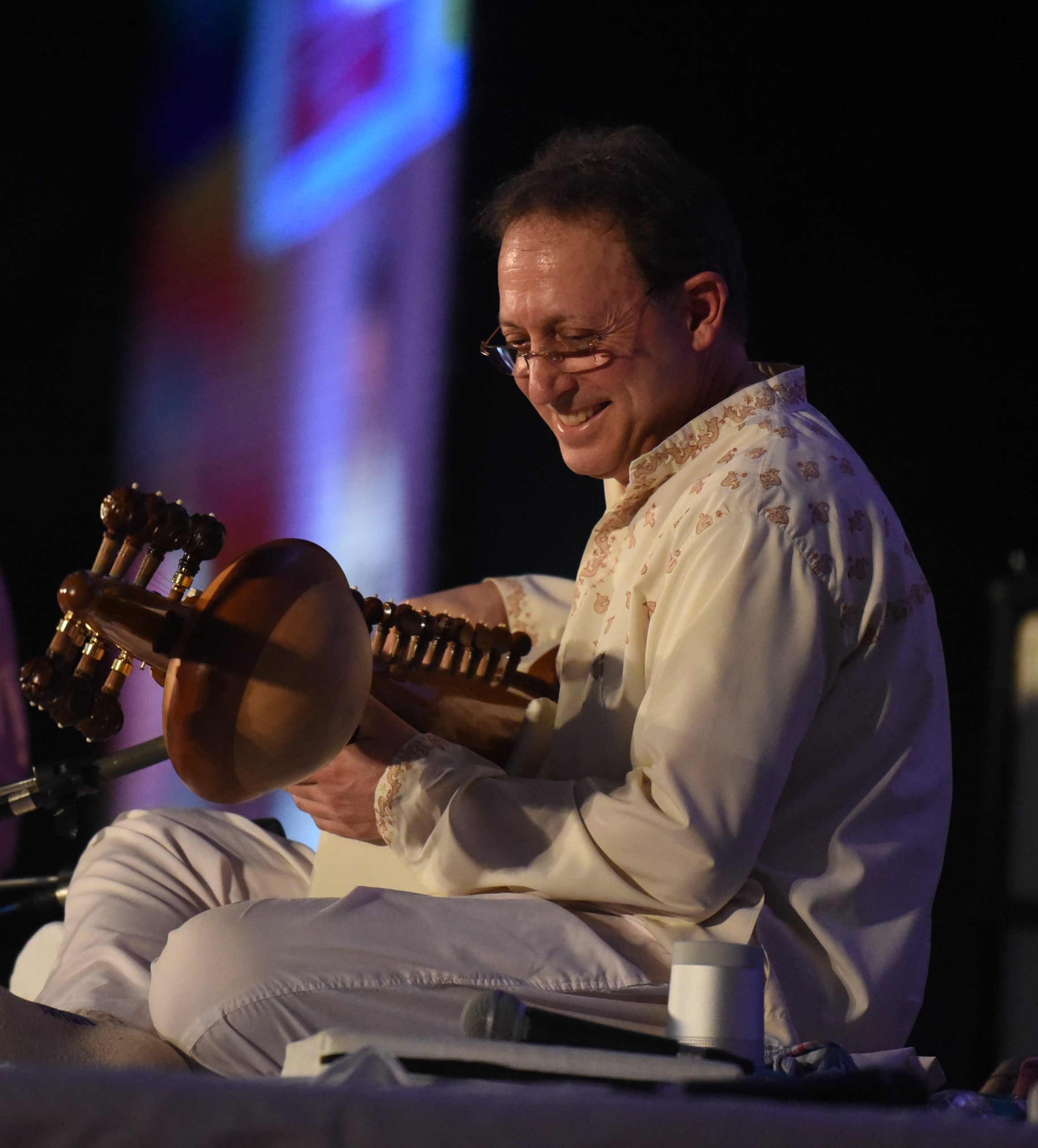
Photo: Shyam Sonar, The Times of India
In addition to performing classical Indian music with some of India’s finest tabla virtuosos (Swapan Chaudhuri, Zakir Hussain and Anindo Chatterjee), Ken has been at the vanguard of numerous cultural “crossover” projects. These include the Grammy nominated CD “Diaspora Sefardi” (Hesperion XXI), “Modal Tapestry I & II”, (Zuckerman’s compositions for an ensemble of 14 musicians from diverse traditions), and “Meeting Two Worlds of Modal Music” with the medieval singer, Dominique Vellard. The second CD of this unique collaboration, “Indian Ragas & Medieval Song”, was named a “Top of the World” CD by Songlines Magazine.
In recent years Ken has also made significant contributions to the development of India’s traditional instruments through various innovations and inventions. The innovations include:
- The integration of precision geared tuners into the traditional pegs of the sarod and tanpura
- Wooden resonators, which have increased the volume and tonal quality of the sarod
- A sarod bridge add-on which allows for micro adjustments of the bridge placement.
His recent invention, “Shanti”, is the world’s first device which automatically plays an acoustic tanpura, giving both musicians and audiences the pure acoustic sound of the tanpura in any practice and performance setting.
In addition to his extensive performance schedule, Ken Zuckerman has directed the Ali Akbar College of Music in Switzerland for 39 years and is also a professor at the Music Conservatory of Basel where he conducts courses in both North Indian classical music and the music of the Middle Ages.
Quotes
“Sarod maestro Ken Zuckerman from Switzerland, gave justice to the raga Chandranandan, conceived by his guru Ali Akbar Khan, combining Jogkauns and Nandkauns, with his delicate and thoughtful handling. He never transgressed from its emotive appeal. Even raga Gorakh Kalyan that followed was handled with great dexterity, underlining his status as the foremost torch bearer of the Ali Akbar style.” Amit Karmarkar, The Times of India, December 14, 2019. Photo: Shyam Sonar, The Times of India
“In his hands one can hear the essence of the gharana. Ken Zuckerman has been a disciple of the sarod maestro Ustad Ali Akbar Khan, for the last 24 years. Within that period he has risen from a mere curious foreigner interested in fathoming the secrets of the exotic East and its equally exotic musical fare, to being one of the foremost performers of the art.” Subhra Mazumdar, The Hindustan Times, Feb.10, 1996
“The impossible becomes achievable when unbounded capacity for hard work is coupled with talent of a high order. Few can hope to plumb the depths of the ocean that is Indian classical music; most barely skim the surface. Listening to Ken Zuckerman on the sarod at the India International Centre, one was humbled by the realisation of just how long and hard he must have worked to provide such aesthetically articulate music. One was awed by the quality of his talent, for boundaries of country, language and custom were swept away by the passion of his determination to master not only a difficult, fretless instrument, but also the mysteries of classical music. Ken has achieved what very few Indians have – become a worthy disciple of Guru Ali Akbar Khan. Surely this is the highest tribute a student can pay a teacher; to prove himself worthy of receiving knowledge and utilising it to the full. It is also the acid test of a Guru, to be able to inspire a disciple to such heights of excellence.” Bandana Malhotra The Hindustan Times, Jan.30, 1996
“The “maihar touch” in his music is not superficial but a product of deep involvement backed up by systematic hard labour. It is this sincerity that makes it difficult to believe that he is not an Indian by birth unless one hears his name or sees him play…Bravo American Sahib!” Subroto Roy Chowdhury, Calcutta Asian Age, April 26, 1996
A complete mastery over the instrument, pure raag structure and note sustenance are the great qualities of this artiste.
Here was a master who had fully harnessed the power of the sarod – the finest of sarod players outside India – an American now living in Switzerland. After a standing ovation and an encore, Ken treated us to yet another enlightening and delightful raag. It was pure magic.
Ali Akbar’s skill in the hands of a foreigner – It was also especially remarkable that in his Koushi Kanara there was the presence of the pure Ali Akbar mood. His control over the rag was an indication of good learning. Likewise, the deep musical sentiment that was there in his vistara of the padas in the alap is the proof of a class artist.
The torch-bearer of Maihar gharana, Ken, in his presentation of Kaushi-Kanada, unravelled the nostalgic pathos of the raga through alap, jor, gat in trital, extensive meends, outstanding ghasits, gamak, rhythmic variations in both Masidkhani and drut gat along with jhala and clear tankari.
Ken has assimilated within himself the very soul of Ali Akbar’s artistry.
…the music of the maestro flows in his veins…


